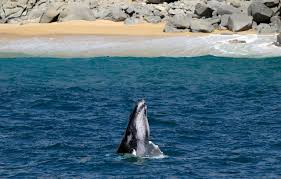
Whaling: Why the Practice Will Not Go Away
Introduction
Whaling, the hunting of whales for their meat, oil, and other products, remains a contentious issue despite global efforts to curb the practice. Although international bans and conservation efforts have significantly reduced commercial whaling, the practice persists due to a complex interplay of cultural, economic, and political factors. Understanding why whaling continues requires an exploration of its historical significance, economic impact, cultural relevance, and the challenges in enforcing global regulations.
Table of Contents
Historical and Cultural Significance
Whaling has a long history, deeply embedded in the traditions of several indigenous communities. For many of these communities, such as the Inuit in the Arctic and the Makah tribe in the Pacific Northwest, whaling is more than just a means of subsistence; it is a vital cultural practice that connects them to their heritage and way of life. The whale hunt is often accompanied by rituals and ceremonies that are integral to the social and cultural fabric of these communities.
In countries like Japan and Norway, whaling has historical roots that date back centuries. For some, it symbolizes national pride and a continuation of ancestral practices. This deep-rooted cultural significance makes the practice resistant to change, as it is intertwined with national identity and heritage.
Economic Factors
The economic incentives for whaling cannot be underestimated. In some regions, whale products have historically provided essential resources, from food to oil. While modern alternatives exist, certain communities and countries continue to see whaling as a means of economic sustenance.
For example, in Japan and Norway, whaling is supported by a niche market that values whale meat as a delicacy. Although the commercial demand for whale products is relatively small compared to other meats, it still provides economic benefits to those involved in the industry. Additionally, there are significant investments in the whaling infrastructure, including ships and processing facilities, which create economic dependencies on the practice.
Political and Diplomatic Challenges

International efforts to ban or restrict whaling have faced numerous obstacles. The International Whaling Commission (IWC), established in 1946 to regulate whaling and ensure whale conservation, has struggled to enforce its regulations effectively. While the IWC imposed a global moratorium on commercial whaling in 1986, countries like Japan, Norway, and Iceland have found ways to continue the practice under loopholes or objections.
Japan, for example, has conducted whaling under the guise of scientific research, despite widespread criticism. This practice has been a significant point of contention in international diplomacy, with Japan arguing that its whaling is conducted for scientific purposes, which it believes is sanctioned by the IWC. This approach has led to ongoing disputes and challenges in enforcing global whaling regulations.
Conservation Efforts and Their Limitations
Efforts to protect whale populations have had some success, but they face significant challenges. International treaties and agreements have helped reduce the number of whales killed, and many whale species have shown signs of recovery. However, enforcement of these agreements remains uneven. Some countries continue to flout international regulations, exploiting legal loopholes or pursuing clandestine operations.
Moreover, the effectiveness of conservation measures is often undermined by political and economic pressures. Countries that support whaling may use their influence to weaken or bypass conservation efforts, while others may be reluctant to confront these practices due to economic or diplomatic considerations.
Public Opinion and Media Influence
Public opinion and media coverage play crucial roles in shaping the discourse around whaling. In many countries, especially those where whaling is not a tradition, there is strong opposition to the practice. Environmental and animal rights organizations frequently campaign against whaling, drawing attention to the ethical and ecological issues associated with it.
Despite these efforts, public pressure alone has not been sufficient to eradicate whaling. The practice’s cultural and economic aspects provide powerful counterarguments that resonate within whaling communities and certain nations. As a result, the clash between conservation advocates and pro-whaling factions continues to shape the debate.
Future Outlook
The future of whaling remains uncertain, influenced by evolving global attitudes, technological advancements, and shifting political landscapes. While international efforts to protect whales will persist, the practice’s deep cultural roots and economic significance mean that complete eradication may be elusive.
In summary, whaling endures due to a combination of historical and cultural significance, economic incentives, political challenges, and the limitations of conservation efforts. The practice’s persistence reflects broader issues of global governance, cultural preservation, and economic interests, making it a complex and ongoing challenge in the realm of wildlife conservation.







